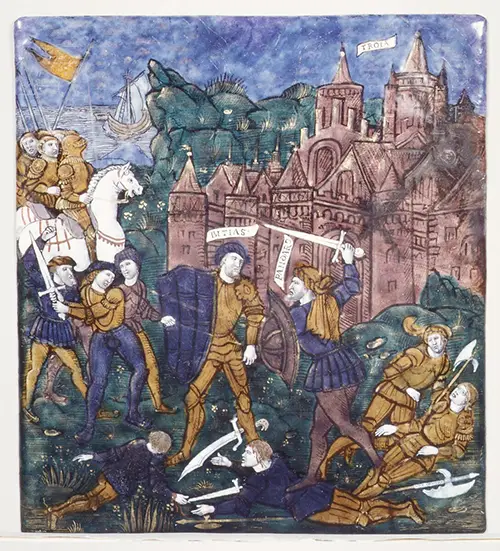Welch Explores the Epic as a Global Art Form

From Homer’s Iliad to the Old English Beowulf, from Edmund Spenser’s Faerie Queene to filmmaker Christopher Nolan’s forthcoming adaptation of the Odyssey, the epic is one of the oldest and most prestigious literary genres. So when Oxford University Press invited Associate Professor Anthony Welch to write an introduction to the epic, he welcomed the opportunity to ponder a topic that had fascinated him ever since he read Milton’s Paradise Lost as a teenager. The resulting book—The Epic: A Very Short Introduction—was published this year.
What accounts for the epic’s popularity throughout human history? In Welch’s words, “The epic is a hero story, a story of great achievement against the odds. It asks us to dream of being more than we are, to test the limits of human potential.” At the same time, epics are archives of human experience. “For early societies—especially those that did not yet have literacy—epics were cultural storage systems, a way for communities to gather, curate, preserve, and pass down traditional knowledge. They bore witness to people’s shared memories and values.” As Welch notes, epics speak to an older time in our cultural history when we saw ourselves as tight-knit communities, “sitting around the campfire telling stories about the heroes we remember from the old times.”
While a previous book by Welch focused on the epic poetry of Renaissance Europe, The Epic: A Very Short Introduction embraces the epic as a global literary form. One of the pleasures of writing this book, he says, was learning more about heroic traditions in places such as North Africa, Central Asia, India, and Southeast Asia. What he discovered was “the astonishing diversity of storytelling around the world, but also the striking family resemblances across these traditions, their concern with human ambition, with violence and its consequences, with war and migration and social change, with human mortality and the meaning of life.”
In today’s post-heroic world, many have proclaimed the death of the epic as a communal form. According to Welch, though, the desire to tell all-inclusive stories of human aspiration and the painful cost of human achievement continues in a variety of forms around the globe. In his words, “There are still singers in parts of the world who recite traditional oral epics, and there are endless adaptations of the old epic stories in the modern novel, in television serials, in puppet theaters, in opera and dance, in film and graphic novels and video games.”
The impulse to think through what the epic means to us today is also evident in contemporary attempts to tell its stories in new ways. Recent novels taking the point of view of women in Homeric epics, for example, bring new attention to the silenced voices and marginal figures in those earlier stories and let them speak for themselves. Time may have overtaken the epic, in other words, but its grandeur continues to inspire us—and its heroes, torn between their outsized ambitions and their human limitations, offer touchstones for understanding ourselves.